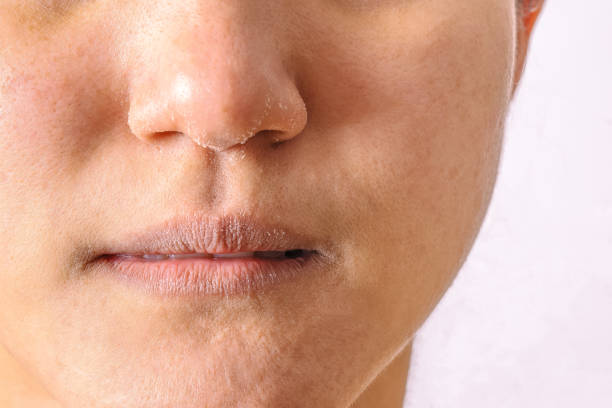Dry Skin: Causes, Treatment and How to Get Rid of Them
Jan 13, 2022 10:59

Medically, dry skin is referred to as Xerosis. It is mainly caused by external or environmental factors such as hot or cold weather, low moisture in the air, or soaking in hot water. This is usually not a serious condition, and it's so temporary as one can do a lot on their own to curb this type of problem.
Oils are an excellent way to restore moisture to dry skin. Some plant oils such as bio oil gel possess anti-inflammatory and antioxidant effects, which can help improve the health of your skin barrier
At times your skin can be damaged or extensively dry, and therefore need to visit a dermatologist. Dry skin is a condition that is so uncomfortable, and it’s marked by patches of itchy skin, cracking, peeling of the skin, and wrinkled skin. Dry skin is usually harmless but, when not treated earlier, may lead to Eczema and infections.
Eczema can cause skin redness, cracking, and inflammation, while infection can be gotten when the skin cracks, allowing bacteria to the skin. This type of problem can occur to anyone and at any age. Also, it can appear anywhere on the body: hands, face, legs. This article will bring out the causes, treatments, and how to get rid of dry skin.
Causes of Dry Skin
They can be classified as external factors and internal factors.
Season
During winter, the skin gets dried because humidity levels are relatively low both indoors and outdoors.
Heat
By using heat sources such as wood-burning stoves and fireplaces dries out the air.
Vitamin D Deficiency
This can be as a result of limited sun exposure. Vitamin D triggers responsible receptors for promoting the formation and release of the skin barrier.
Hot Baths And Showers
Too much washing and long, hot showers can dry your skin.
Hard Water
Hard water contains minerals like calcium and magnesium. These are examples of heavy metals which can prevent your skin from absorbing moisture.
Soaps And Detergents
Harsh soaps and detergents are formulated to remove oil.
Age
Although dry skin is an everybody problem, the aged are highly prone to dry skin. Adults aged 40 and above are in a position of having dry skin. The older one gets, the diminished amount of oil that the skin pores naturally produce.
Family History
Some researchers state that dry skin can be inherited, and if in your family there are dry skin records, you definitely get this condition.
Other Underlying Conditions
Skin conditions such as psoriasis or eczema can subject your skin to dryness.
Dehydration
This is a lack of enough water in the body. The human body uses a lot of water in all the processes that happen in body. Therefore, the amount of water intake for a human being is supposed to be high, thus preventing dehydration.

Prevention of Dry Skin
• Use of moisturizers that seals the moisture into the skin and keep water from escaping• During winter, it is advisable to wear scarfs and cover as much skin as possible. In the case of hands, wear gloves in cold weather and when using chemicals.• Always choose wisely on things like soaps and detergents, fragrance-free skin care products, and even fabric softeners. Go for the gentle laundry soaps. Dermatologists always advocate for fragrance-free products.• Limit your bath and showers daily to not more than 10 minutes and keep the water temperature warm, not hot. Soon you are out of the shower, apply a moisturizing cream.• Expose your skin to sunlight which is a perfect source of vitamin D. Also, consumption of nutritious whole foods diets like red meat, egg yolks, orange juice, mushrooms, among others. These types of foods are highly rich in vitamin D.• Incases of hard water, it is advisable to implement a home filtration system. Also, using skin-care products that contain vitamins A and C aids in removing deposits of the hard metals from the hard water.• Always stay hydrated. That has a habit of drinking a lot of water.• Avoid standing or being in places close to heat sources for a long time.• Use creams that are less irritating rather than lotions. A cream or ointment that contains any of the following will work perfectly for the skin: Shea butter, mineral oil, Glycerin, or lactic acid. On the contrary, avoid skin products that contain any of the following for your skin to retain natural oils: Alcohol, fragrance, and retinoids.• Use a humidifier in your room to add moisture to the air.
How to get rid of dry skin
• Use petroleum jelly. It prevents moisture from evaporating.• Use lukewarm temperature of the water• Take an oatmeal bath which is a way to appease irritated skin. Moreover, oatmeal is antioxidant and anti-inflammatory.• Use virgin coconut oil, which has antibacterial properties.
To sum up, if the above prevention measures do not bring relief, the only advisable thing is to seek medication from the dermatologist because it indicates serious internal health problems or severe skin conditions.







































































